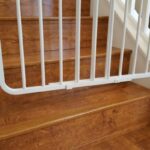Why Tiny Homes Are a Big Deal
Tiny homes aren’t just a passing trend—they’re a movement. More and more people are ditching their oversized houses and embracing the simplicity of living small. From saving money to reducing their environmental footprint, the tiny home lifestyle offers benefits that can’t be ignored. But what exactly makes this style of living so appealing? Why are so many folks making the leap? Let’s dig into the details and uncover why tiny homes are capturing hearts and minds everywhere.
The Basics of a Tiny Home
Before diving into the pros and cons, let’s get one thing straight: what is a tiny home? In its simplest definition, a tiny home is a compact living space, typically less than 400 square feet. These homes come in various shapes and forms—some on wheels, others stationary—but all share one common trait: they focus on maximizing space efficiency.
Different Types of Tiny Homes:
- Tiny Houses on Wheels (THOW): These are built on trailers and offer the flexibility of movement. You can park them in a designated space or travel with your home wherever you go.
- Container Homes: Built from recycled shipping containers, these homes are sturdy, affordable, and can be designed in various styles.
- Cottages or Cabins: Permanent tiny homes built on foundations, often located in rural areas.
- Bus Conversions (Skoolies): Converted school buses offer a mobile lifestyle with all the comforts of home.
- Prefab Tiny Homes: These come in kits, ready to assemble, offering a more affordable and efficient option for tiny living enthusiasts.
Why People Are Choosing to Live in Tiny Homes
Tiny homes aren’t just for minimalists—they’re for anyone looking to simplify their life. Here are a few of the top reasons why people are drawn to this way of living:
1. Affordability
One of the most significant draws to tiny homes is their affordability. Let’s face it—traditional homes come with a hefty price tag, and the mortgage payments can feel endless. On the other hand, tiny homes can cost a fraction of a regular house, and many people can even afford to pay for them outright, skipping the dreaded mortgage altogether. Imagine living debt-free!
2. Eco-Friendliness
Tiny homes are inherently eco-friendly. With less space to heat, cool, and maintain, the energy required to keep them running is minimal. Many tiny homes incorporate sustainable materials and energy-efficient systems, like solar panels and composting toilets, making them a fantastic option for the environmentally conscious.
3. Simplicity and Minimalism
A tiny home forces you to prioritize what matters most. Instead of cluttering your life with unnecessary stuff, you focus on the essentials, which leads to a more intentional lifestyle. Say goodbye to endless cleaning, maintenance, and organization. In a tiny home, everything has its place.
4. Flexibility and Mobility
If you’ve ever dreamed of traveling while keeping all the comforts of home, a tiny house on wheels might be your perfect solution. You’re not tied to one location, and moving becomes a breeze. Plus, with the rise of remote work, many people are taking advantage of their mobility to live and work in new places without giving up the comforts of home.
5. Customization
Building a tiny home allows you to tailor every inch to your preferences. You can choose the layout, materials, and design elements that suit your lifestyle, ensuring that your space works exactly how you need it to.
Is Tiny Living Right for You?
Living in a tiny home isn’t for everyone, and that’s okay. While it offers incredible benefits, it also comes with challenges. Here are a few things to consider before making the jump to tiny living:
Space Constraints
This one’s obvious—tiny homes are small! If you’re someone who needs a lot of room or enjoys having separate spaces for different activities, you might find it challenging to adjust to a tiny home. On the flip side, if you crave simplicity and love the idea of a clutter-free lifestyle, the small space might be a perfect fit.
Zoning and Legal Restrictions
Before purchasing a tiny home, you’ll need to check local zoning laws and building codes. Some areas are more tiny-home-friendly than others, while certain places may restrict where you can park or build a tiny home. Doing your research ahead of time can save a lot of headaches down the road.
Storage
When you move into a tiny home, you’ll need to get creative with storage solutions. Limited space means that everything you own must serve a purpose or have a dedicated place. Consider multi-functional furniture, vertical storage, and built-in shelving to make the most of every inch.
Maintenance
Tiny homes require regular maintenance, just like any other house. However, with a smaller footprint, the upkeep is typically more manageable. Whether it’s fixing a leak, cleaning, or performing seasonal upkeep, it’s all easier when there’s less space to deal with.
How to Design a Tiny Home That Suits Your Needs
One of the best things about tiny homes is the ability to design the space to fit your lifestyle. Here are some key considerations to keep in mind when designing your tiny dream home:
1. Open Layout
In such a small space, an open floor plan can make your tiny home feel more spacious. Avoid cluttering the space with too many walls, and instead, opt for open-concept living areas that flow naturally from one room to another.
2. Multi-Functional Furniture
Every piece of furniture in a tiny home needs to earn its keep. Consider built-in seating with hidden storage underneath or foldable tables and chairs that can be tucked away when not in use. Murphy beds, loft spaces, and convertible couches can also help maximize space.
3. Utilize Vertical Space
Make use of the vertical space in your home by installing shelves, hooks, and hanging storage solutions. Think of your walls as another place to store items without taking up precious floor space.
4. Natural Light
Natural light can do wonders in making a small space feel larger. Opt for large windows, skylights, or glass doors to bring in as much light as possible. Not only will this make your home feel more open, but it will also save on electricity during the day.
5. Personal Touches
Just because your home is small doesn’t mean it can’t reflect your personality. Add personal touches like artwork, plants, or decorative items that make your space feel cozy and uniquely yours.
FAQs About Tiny Homes
Q: How much does it cost to build a tiny home?
A: The cost of a tiny home can range anywhere from $10,000 to $100,000, depending on factors like size, materials, and whether it’s DIY or professionally built.
Q: Do I need a special permit to live in a tiny home?
A: It depends on your location. Some areas are more accepting of tiny homes, while others have strict zoning laws and building codes. Always check local regulations before building or buying a tiny home.
Q: Can a family live in a tiny home?
A: Yes, many families have embraced tiny living. However, it requires thoughtful design and plenty of space-saving solutions to make it work.
Q: What are the ongoing costs of living in a tiny home?
A: Tiny homes typically have lower utility costs due to their size, but other expenses, like maintenance, parking fees (if mobile), and insurance, should be considered.
Q: Can I finance a tiny home?
A: Financing options for tiny homes can be more limited than traditional mortgages, but there are lenders that specialize in tiny home loans, RV loans, or personal loans that can be used for this purpose.
Conclusion: Is a Tiny Home in Your Future?
Tiny homes are more than just a trend—they represent a shift toward a simpler, more intentional way of living. Whether you’re drawn to the financial savings, environmental benefits, or the freedom that comes with tiny living, there’s no doubt that tiny homes offer big advantages. Of course, there are challenges to consider, but for many, the rewards outweigh the downsides. If you’re ready to downsize and take control of your lifestyle, a tiny home might just be the perfect fit.
Authoritative Links (Plain Text):
- https://www.thetinylife.com
- https://www.tinyhousebuild.com
- https://www.tinyhomebuilders.com
- https://www.goingtiny.com







